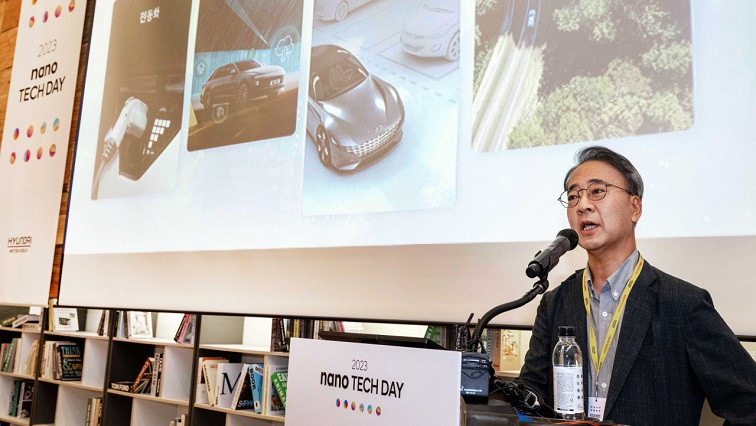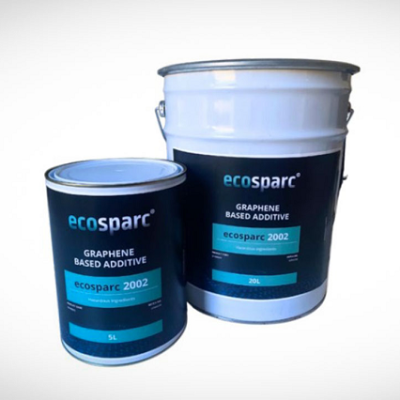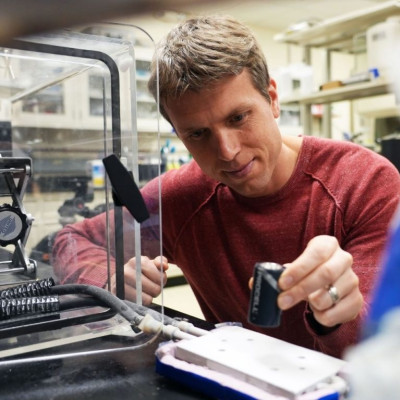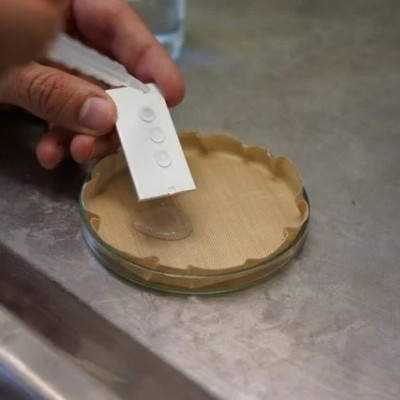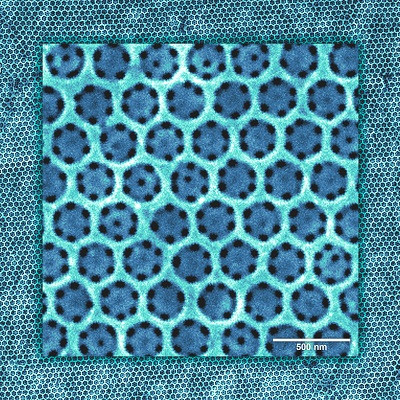Unlike normal chemical reactions, which are characterized by a single event, Hyundai said Thursday its new polymer coating would help the vehicle mend scratches within two hours in ambient temperatures.
In freezing temperatures, the process would take longer, about a day.
Hyundai said it was also considering applying the cutting-edge technology to camera lenses or lidar sensors, crucial components for autonomous vehicles.
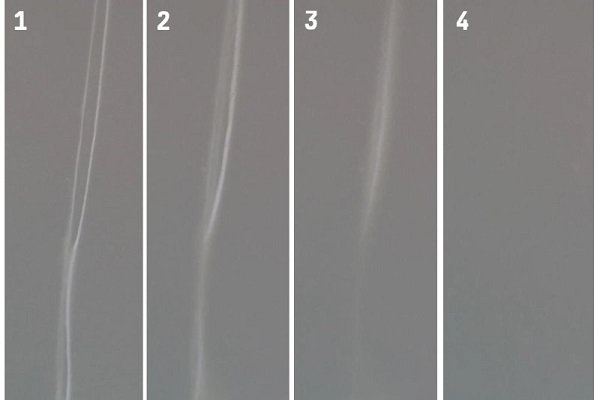
From left to right, four photos show how a nanotechnology-based material heals an auto scratch. Hyundai Motor said it would apply the technology to camera lenses or lidars of self-driving vehicles.
Among other nanotechnologies Hyundai featured was a new solar cell the size of a nanometer, or one-billionth of a meter, that could be embedded into the vehicle's surface.
Traditional solar cells use silicon, but Hyundai's new cells would be transparent and more effective. The company said future vehicles could come equipped with solar cells on car windows.
Hyundai will also be using a new technology called oil capsule polymer coating to slow down the normal wear and tear on car parts, applying it to the chassis of new models in coming months.
The company also showed off transparent radiative cooling film, which it says could be processed on to car windows to help lower the interior temperature and achieve reduction in carbon emissions.
Hyundai said some of the technology would be ready for commercialization in the near future.
"Our researchers have worked hard to create these technologies," Hyundai Vice President Hong Seung-hyun said during a media event in Seoul.
"The nanotechnology-based materials will spearhead the change of the mobility business down the road."
Read the original article on United Press International (UPI).

